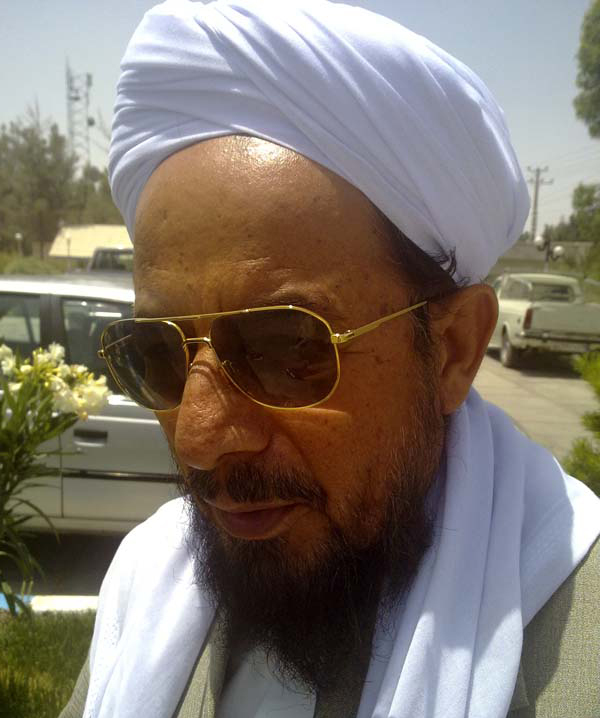
RNA – In an exclusive interview with Rasa News Agency, Mawlawi Abdul-Samad Sadati, the Sunni Friday prayer leader of the southeastern Iranian city of Saravan, said that due to the uncertainty and lack of clarity, Iran’s nuclear negotiations with the P5+1 group of countries have not achieved what the Iranian people have expected, saying that many complicated and hidden issues have caused various ambiguous interpretations over the negotiations.
He stressed that the negotiations and agreements must be fully transparent, adding that because of this lack of transparency, one can interpret the text of the agreement according to his own understanding. For this reason, Iran and the West’s understanding of the agreement have many discrepancies.
Mawlawi Sadati said that the main concern of a final agreement is to lift the sanctions imposed by the West on Iran. “What is more important than any other issue, is the removal of the oppressive sanctions at the same time as the final agreement is signed,” he said.
He added that US President Barack Obama seeks to satisfy the Zionist parties and lobbyists by engaging in consultations with them after each round of negotiations with the P5+1 group of countries. Then during the next round of negotiations, the US seeks to impose the Zionists views. Due to this, Iran’s negotiating team must be fully alert in response to the positions taken by the other parties.
The Iranian Sunni scholar emphasized the importance of defending Iran’s nuclear achievements, saying that the Iranian Ministry of Foreign must defend the hard-won achievements made by the country’s nuclear scientists. “Their arduous efforts to achieve nuclear technology must not be ignored. The other sides uses the excuse that they want to interview our scientists, but by ‘interviewing’ they mean ‘spying’ on our nuclear facilities,” he said.
“It is through these means that they plot,” he stressed. “Thus, the general principles of the Islamic system of government which have been laid out by the Supreme Leader of the Islamic Revolution, Ayatollah Sayyed Ali Khamenei, should be considered at every stage of negotiations,” he added.
Mawlawi Sadati added that Ayatollah Khamenei has emphasized the importance of maintaining the resistance economy in the face of the challenges imposed by the sanctions. “Everyone knows that Iran, with its abundant human resources and reserves is not in need of other countries. The Imposed War [Iran-Iraq War] is a good example of this. Thus, the negotiators must not do anything that will damage to the country’s independence,” he said.
The scholar from Sistan and Baluchistan province explained that the Western powers’ threats show that they are not committed to negotiation. He added that their threats made throughout the negotiations were meaningless. “They seek to scare us with their threats so that we surrender and accept their demands. However, it is not in the interests of the Islamic system of governance for us to remain silent. They are insulting a nation that which has offered many martyrs in the fight against injustice and against the arrogance powers. The Iranian people appreciate the efforts made by their negotiating team but these are important issues and they must not be taken lightly,” he explained.
He pointed out the hypocrisy of the Western powers, saying that they want access to Iran’s military facilities but do request the same from Arab countries, saying: “No independent nation would ever allow the inspection of the military facilities – this is our red line! The Americans want to dominate us, just like they did before the Islamic Revolution. This is a clear example of their bullying attitude and any surrender to their demands will have grave consequences for our country.”
In conclusion, Mawlawi Sadati explained that so far the negotiations suggest that the other side do not want to accept our demands and has offered various excuses to minor issues. “One of the issues they have brought up is the issue of human rights. We have proven that we negotiate logically but it seems that we will not achieve the expected results from these the negotiations,” the Sunni scholar said.
111/112